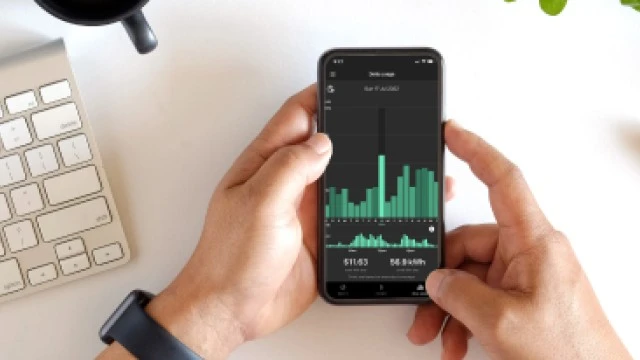Preparing a power outage action process
Businesses rely on a steady power supply, but some are more vulnerable than others to an outage – especially in an emergency. That’s why all businesses need to have a plan in place for if an outage occurs – whether it’s a planned event or an unexpected fault. We tend to take our power supply for granted until we don’t have it. Having an action plan, where you can ‘keep calm and carry on’, won’t get the power on faster, but it will provide a solid plan B.
Establishing backup power solutions
In the past, businesses turned to diesel generators when the power went down. Many people will remember Auckland CBD’s five-week power outage in 1998, when the hum of generators dominated the city day and night. The downside of generators is if you haven’t got one on standby when an outage occurs, you’ll be up against lots of other business owners hunting for them at the same time.
There are other things businesses can do to help keep the show on the road. One of these is to install an Uninterruptable Power Supply (UPS) to protect equipment and maintain mission critical computer networks and data dependent systems. Companies specialising in these systems can help you figure out their sophisticated technology, which ranges from small battery backup and surge protectors to enormously powerful systems, will work for you.
If your workplace has solar power with a battery system, you may be able to harness this as a backup during an outage. Some high-quality solar battery systems are designed to provide power during a power cut, independent of the national grid - a sustainable solution keeping you powered up in the short term.
Keeping the business running with a continuity plan
A Business Continuity Plan (BCP) is a critical part of contingency planning for any business owner. No one wants the stress of major disruptions and the threat of financial hardship when the power goes off unexpectedly. A BCP makes sure that a business can continue to operate when faced with an unexpected disruption or natural disaster, such as Cyclone Gabrielle. Here are some of the primary elements that a BCP should include:
- Identification of all the vital functions and processes of your business
- What to do if you lose internet connectivity
- Communication guidelines for employees, customers and stakeholders
- Reliable backup of data and recovery of any lost during the outage
- Training to prepare staff for an outage and help them understand their roles
Regularly maintaining and testing backup systems
TV personality and author Phil McGraw is quoted as saying, “don’t wait until you’re in a crisis to come up with a crisis plan”. Businesses can’t just set and forget their backup systems for power outages. They must be maintained and regularly tested to ensure that they work when needed.
Scheduled testing and maintenance should be an important part of your BCP. You don’t want to find out that the diesel generator won’t start at the crucial moment because it’s been sitting at the back of a warehouse for years with no attention. To minimise the already challenging interruption to your business, make sure your mitigation plan includes regular backup system testing by certified personnel.
Communicating to customers and staff during outages
In a power outage, when tensions are running high and staff are feeling less than calm, communication is key. Those sorting the outage are under a lot of pressure – often by staff who are dealing with panicked or frustrated customers. Some companies will have a well-trained incident response team who are prepared to leap into action and calmly handle communications.
Information about what has happened, how the incident is being addressed and expected timeframes will need to be shared with all employees, impacted users, customers and key stakeholders.
A power outage can affect your means of communication, so you will also need to consider alternative ways to reach people.
Tips for hospitality businesses during a power cut
Businesses in the hospitality industry are very dependent on a stable power supply, so a power outage can feel like an absolute catastrophe. It doesn’t just affect customers, but also things like food safety, storage and associated financial losses.
Apart from the obvious “be prepared” messaging, hospitality businesses need to take some immediate actions.
To keep food safe, ensure that refrigerators, freezers and chiller rooms are kept shut as much as possible. If possible, get bags of ice and add to the freezers to keep the temperature lower for longer. Keep a log of the exact time the power went off and when it’s back to help figure out what food is safe to keep and what should be thrown out.
Food in the middle of being cooked (particularly meat and chicken) will need to be tossed as it won’t have reached a safe cooking temperature.
Keep talking to your customers if you’re hosting them in a restaurant and have a plan for processing a sudden disruption to service. And make sure they can leave safely if lighting and automatic doors are affected.
Tips for corporate and office businesses during a power outage
The eerie silence that follows a power outage on a hectic Thursday afternoon in a corporate office can be often followed by the dawning realisation of “what now?”
The first line of defence is to tell staff to switch off all computers and appliances as these can be damaged by a potential power surge when the electricity supply is restored.
For many, the first sign of an unexpected outage is when a computer monitor goes black and that half-finished report suddenly disappears. Corporate and office-based businesses will have a range of backup plans and Cloud-based systems in place, so the loss of data is not the disaster it once was.
If the outage affects the whole building, the reality of lighting, elevators, exit doors and alarms impacts everyone. Ensure that staff understand the safety plan and that any guests are dealt with appropriately.
Running systems on the Cloud
In a post-Covid world, more people are working remotely. And many more are working in a hybrid way from the office and at home. Relying on Cloud-based systems means that staying connected in a power outage at head office is more of a minor problem and not a major business disruption.
By having Cloud computing that saves and backs up important data off site or to a remote server, any system failure, whether caused by natural disaster or fault-or triggered power outage, is much easier to handle.
Tips for manufacturing businesses during a power outage
Our manufacturing industry is heavily dependent on a continuous supply of electricity to keep machinery operating – often on a 24/7 basis. Thankfully a backup generator system is almost always in place to step in. Usually made up of transport equipment, wood and paper products, and food and agricultural processing, an outage in the manufacturing sector can have a big financial impact. When things come to a halt, the knock-on effect can trigger injury, damage to machinery and potential environmental issues.
Make sure that site procedures include having emergency kits on hand with first aid essentials, torches, water and communications devices. Factories and high-risk manufacturing industries are required by law to have robust workplace rules of practice, and staff must know what they need to do in the event of an unexpected shutdown due to loss of power.
Tips for trade businesses during a power cut
Whether you’re a retailer with a storefront or a business dealing with stock and deliveries, your power supply is crucial for keeping your customers happy. If an unexpected power outage occurs in your shop, the impact can be a financial loss on the spot. Shoppers abandon trollies and walk out the door as they know they can’t pay for their shopping. If you’ve been in this situation as a customer or business owner, you’ll understand the frustration of not being able to complete a sale.
Back in the day, a manual credit card imprinter could be used if the Eftpos machine was down, but most banks today don’t honour this system.
Anticipating an outage is about thinking through the scenarios and being able to soften the impact. This will help with customer relations and minimise the profit losses for your business.
Preparing your business before a power cut?
Get more information from our power outage resources.















